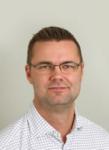Scientific programme
The meeting has an exciting Keynote speaker, oral presentations and poster presentations.
The keynote speaker is Pär K. Ingvarsson, Professor of Evolutionary Genetics in the Umeå Plant Science Centre at Umeå University, Sweden. His presentation is titled: "Gene flow, natural selection and historical contingency shape local adaptation across a latitudinal gradient in European aspen (Populus tremula)"

His research interests are in the importance of population structure in determining patterns and rates of divergence during speciation, the importance of hybridization and polyploidization in plant speciation and the effects of mating system on the distribution of genetic variation in geographically structured populations.
Abstract of his talk
Gene flow, natural selection and historical contingency shape local adaptation across a latitudinal gradient in European aspen (Populus tremula L. Salicaceae)
In Scandinavia, admixture of post-glacial lineages of European aspen (Populus tremula) have shaped the nature of clinal variation and local adaptation in a number of key phenology traits of great adaptive significance for temperate trees. Furthermore, population differentiation and adaptation is not only a result of historical processes, but is also predicted to shape future evolution, since population differences in genetic architecture will influence future responses to selection. Using common garden data on phenology and growth in P. tremula we highlight how population differentiation can result in differences in genetic architecture leading to origin- future responses to future selection. The data highlights a hitherto largely ignored link between past range shifts because of climatic oscillations, levels of standing variation currently available for selection and the potential for future adaptation in a terrestrial foundation species.
Beside oral presentations and posters we also welcome discussion topics. Participants can indicate on the registration form what they would like to contribute. The number of oral presentations is limited by the time available, so make sure you get in early.
Oral presentations are likely to be 15 minutes, with a few minutes for discussions. The oral presentation sessions are on Monday afternoon, Tuesday morning and Wednesday morning. A prize will be presented for the best PhD student talk.
The poster presentations will be at the end of Monday, with wine reception. A prize will be presented for the best two student posters.
Discussion topics have been a great opportunity for engagement with the audience, or for presenting new ideas or methods. At the EGG meeting April 2013 Alex Twyford (Syracuse University) gave an excellent view of the state of the art of Next Generation Sequencing.
